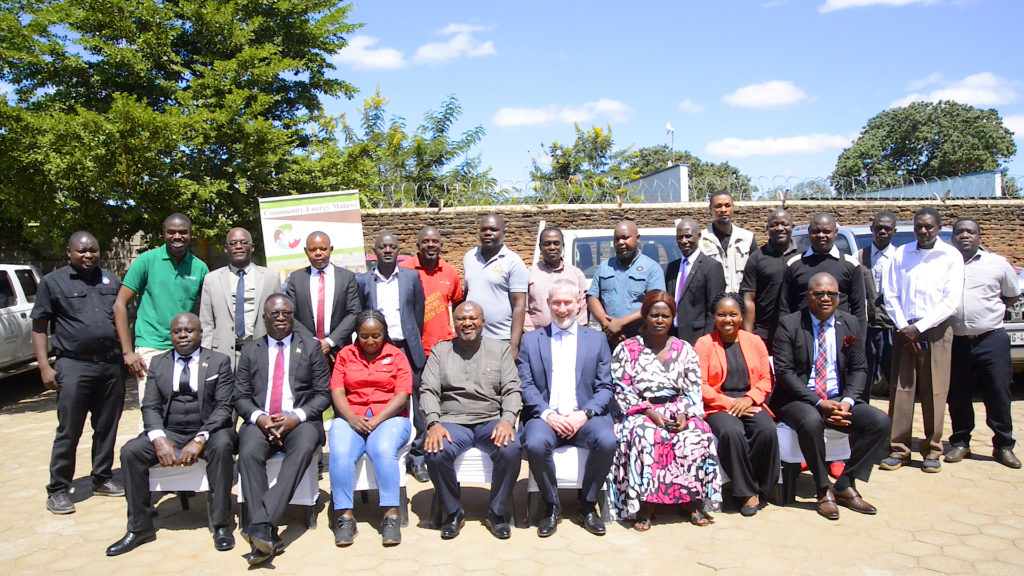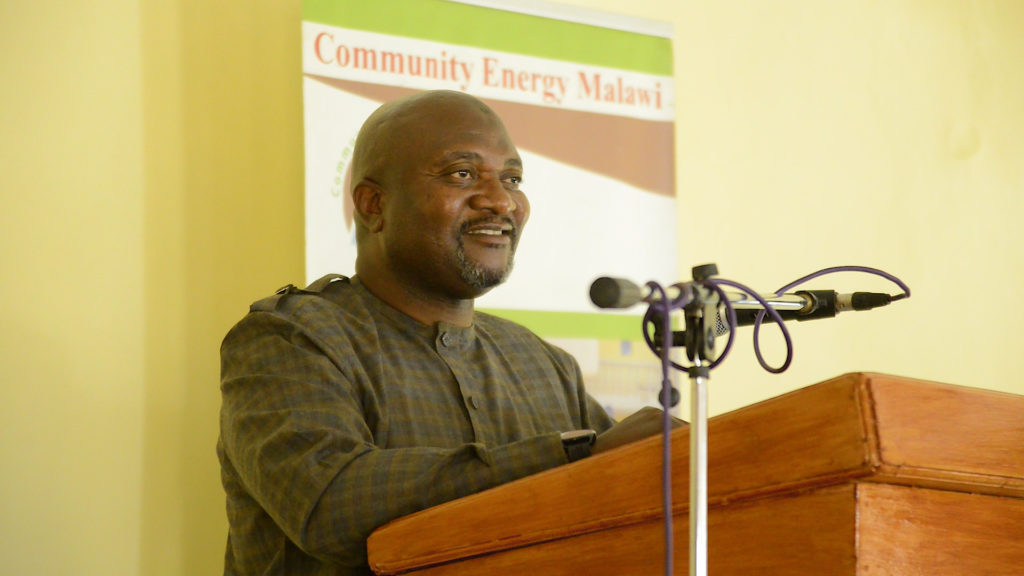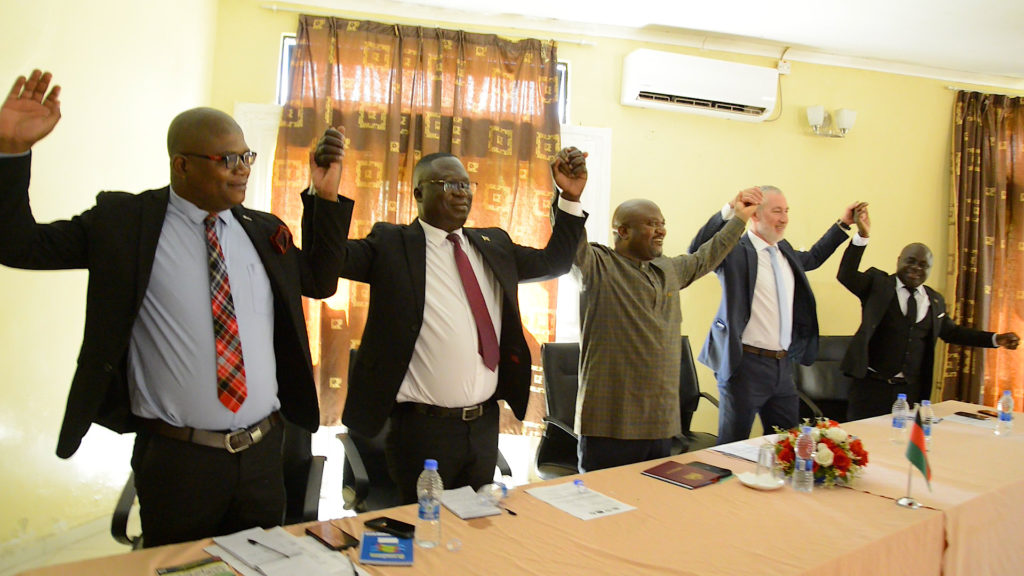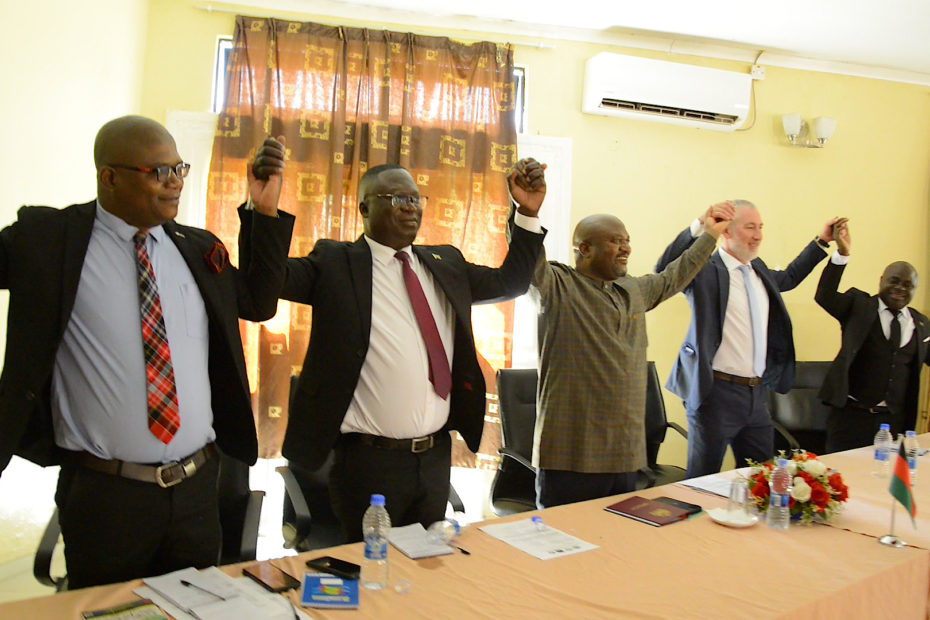On the 17th April 2024, key stakeholders gathered in Balaka, Malawi to discuss decentralisation of energy services. Planned and delivered in partnership with the Government of Malawi, this EASE project learning event focussed on the District Energy Officer (DEO) pilot work led by Community Energy Malawi (CEM). Opened by Honourable Ibrahim Matola, the Minister of Energy, and representatives including District Commissioners from Balaka and Dedza, plus Directors from the Ministry of Energy and the Ministry of Local Government, Unity and Culture, this event facilitated detailed discussions on the next steps for decentralisation of energy planning and governance in Malawi.

Supporting delivery of policy targets
The EASE DEO work is situated in the context of Malawi’s decentralised system of governance, which has been formal policy since 1998. Through the decentralisation process, the Government of Malawi has gradually devolved some of its functions to the district councils. Notably, Ministries and Departments like Education, Agriculture, Forestry, Environment, Water and Public Works have full function District Offices that coordinate their respective ministry activities. Missing from this process has been Energy.
In 2017, with the concept of District Energy Officers emerging from stakeholder discussions in Malawi, CEM, UoS and other Malawian and UK stakeholders collaborated on a series of short projects to develop the concept, publishing a set of formal recommendations and a blueprint of the role. Through this work, the DEO role was defined as a district level facilitator for enhancing the relationships between communities, district council and central government; with significant overlap between fulfilling government objectives and fulfilling community objectives.
DEOs were formally included in Malawi’s 2018 National Energy Policy and there is an existing policy target to roll out DEOs to all districts.

Ministerial backing: Honourable Ibrahim Matola, Minister of Energy, opening the event.
Key Learning:
- Recent Ministry of Energy restructuring has removed the function of centralised energy officers and a management structure and job descriptions for district energy officers have been produced
- Next steps involve collaboration with the Ministry of Local Govt., Unity and Culture to support the recruitment and deployment of energy officers for each district
- Balaka (an EASE pilot district) district council have progressed their own plans and included Principal and Assistant Energy Officers in their latest budget submissions
Participatory Planning
According to the decentralisation framework, local planning starts at village (rural) or neighbourhood (urban) level with the formulation of Village Action Plans (VAPs) or Neighbourhood Action Plans (NAPs). VAPs/NAPs are a set of key priority needs from the village/neighbourhood. The District Council then consolidates these into a local development plan (District Development Plans in district councils or Urban Development Plans in town, municipal or city councils). The local development plan therefore, sets the priorities of the entire district for a five-year period.
The EASE team shared the outcomes of their work to demonstrate data gathering and analysis methods, plus develop energy literacy at the local level – critical functions for future District Energy Officers to enable effective and participatory planning. The DEO strand of the EASE project has demonstrated a set of DEO activities that deliver clear benefits to multiple development areas and enhanced access to sustainable energy at a district level.

Key Learning:
- DEO led sensitization events and campaigns improve local awareness of renewable energy product standards and associated consumer rights – this helps bridge a barrier between the current format and accessibility of standards information
- DEOs can lead successful energyscaping campaigns, utilizing open-source software to accumulate valuable datasets to support local and national planning and energy access tracking
- Education and support for key stakeholders, local extension workers and local technicians can support:
- Mainstreaming energy in the local planning process
- Communities to identify and develop energy projects
- Building local technical capacity to improve sustainability and overcome barriers of access to renewable energy
- Local empowerment that results in substantial increases in renewable energy access
